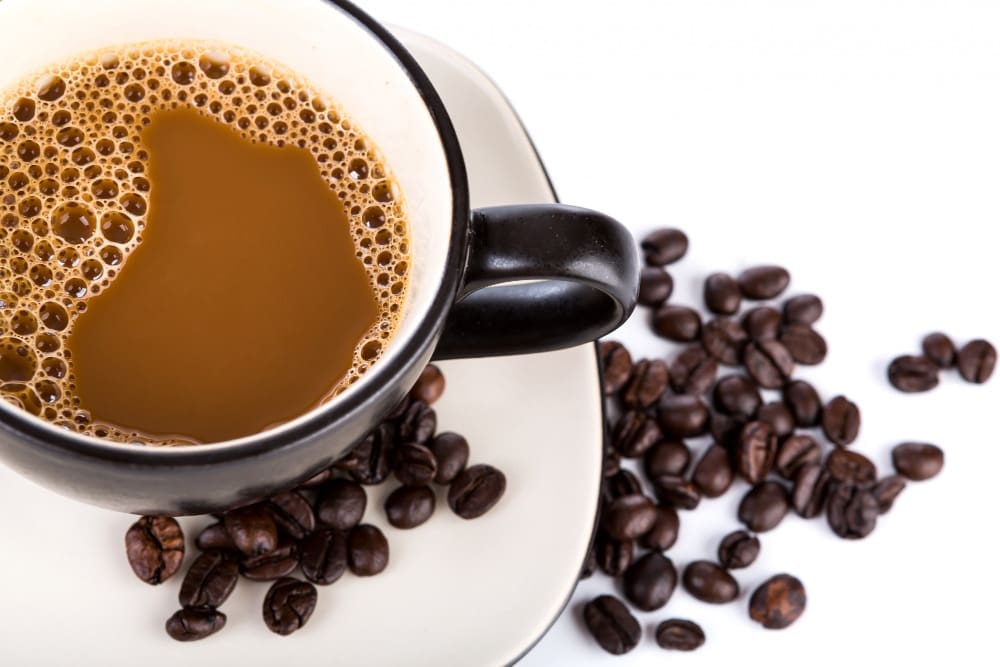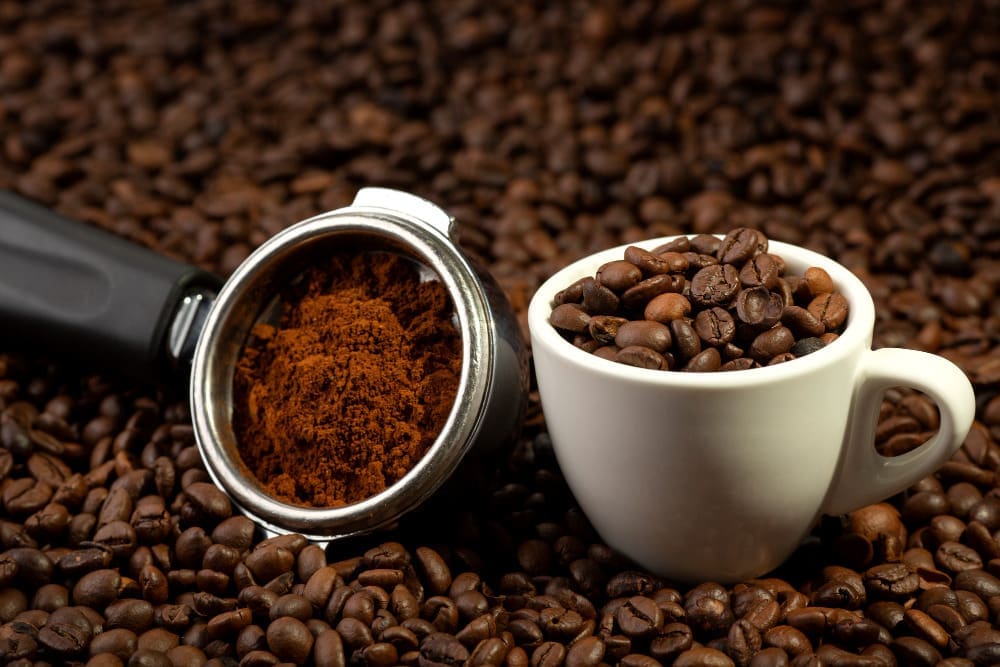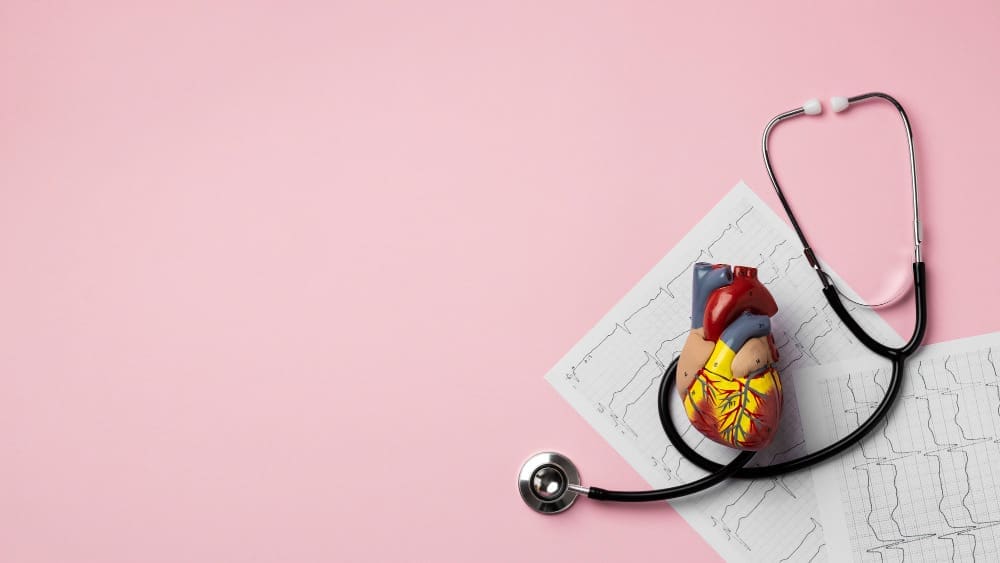
Ever thought your morning coffee could make your heart skip a beat? At Liv Hospital, we get it. Caffeine, found in coffee, tea, and soft drinks, is a stimulant. It’s something many people wonder about when it comes to heart health.
The link between caffeine and heart palpitations worries a lot of folks. We’re here to help you understand this connection better.
Studies show caffeine can cause heart palpitations or flutters, mainly in those who are more sensitive. Knowing this is key to keeping your heart healthy. We’re dedicated to sharing our knowledge on how caffeine affects the heart.
Key Takeaways
- Caffeine is a widely consumed stimulant that can affect heart rhythm.
- Some people are more sensitive to caffeine’s effects on the heart.
- Understanding the link between caffeine and heart health is important.
- Liv Hospital provides expert care for heart health concerns.
- Caffeine’s impact on heart palpitations can vary from person to person.
The Relationship Between Caffeine and Your Heart

Caffeine is a stimulant found in many foods and drinks. It affects our heart rate and rhythm. Knowing what caffeine is and how it impacts our heart health is key.
What is Caffeine and Where is it Found?
Caffeine comes from plants like coffee beans and tea leaves. We find it in coffee, tea, energy drinks, chocolate, and some medicines. The amount in these products can change how it affects us.
How Caffeine Affects Your Cardiovascular System
Caffeine makes our heart beat faster by releasing hormones. This can cause heart palpitations or irregular beats. How caffeine affects us varies based on our sensitivity, how much we drink, and our heart health.
Common Physiological Responses to Caffeine
Caffeine can make our heart rate go up and our blood pressure rise. It also makes us feel more alert. For most, these effects are temporary and safe. But, they can be a concern for those with heart issues or who are very sensitive to caffeine. Knowing these effects helps us manage our caffeine intake and keep our heart healthy.
Understanding Heart Palpitations and Flutters

Heart palpitations are common and can be scary. But knowing what causes them and their symptoms helps us manage them better. These irregular heartbeats or fluttering feelings in the chest can be due to caffeine, stress, or heart issues.
Defining Heart Palpitations and Flutters
Heart palpitations make you feel your heartbeat, which might seem off. They can happen anytime, whether you’re sitting or moving. Many things can trigger them, from simple causes to serious heart problems.
Common Symptoms and Sensations
The feelings you get from heart palpitations can differ. Some feel a pounding in their chest, while others notice skipped beats or an odd rhythm. These feelings can last just a moment or go on for a while.
Common symptoms include:
- A pounding or throbbing heartbeat
- Irregular heart rhythms
- Skipped beats or extra beats
- A fluttering sensation in the chest
When to Be Concerned About Heart Palpitations
Even though heart palpitations are usually not serious, sometimes they can be a sign of a bigger problem. Knowing when to worry is key. Look out for symptoms that might mean you need to see a doctor.
| Symptom | Potential Concern |
|---|---|
| Chest pain or discomfort | Possible heart condition |
| Dizziness or lightheadedness | Potential for fainting or reduced blood flow |
| Shortness of breath | Possible heart failure or other serious conditions |
If you have these symptoms with heart palpitations, it’s best to get checked by a doctor. They can figure out what’s really going on.
Fact 1: Can Caffeine Cause Heart Palpitations? The Science Explained
Studies show a link between caffeine and heart palpitations. Caffeine is in many drinks and foods. Its effect on the heart is complex.
The Biochemical Pathway: From Caffeine to Palpitations
Caffeine makes the heart beat faster by releasing certain chemicals. The main way it does this is by blocking adenosine receptors. This can cause an irregular or strong heartbeat, known as palpitations.
Research Evidence on Caffeine-Induced Heart Palpitations
Many studies have looked at caffeine and heart palpitations. They found that caffeine can cause palpitations in some people. But how sensitive someone is to caffeine can vary a lot. Drinking too much caffeine can increase the risk of palpitations.
- Caffeine can make the heart rate and blood pressure go up.
- Some people may get palpitations because of caffeine’s effect on the heart.
- How much caffeine it takes to cause palpitations can differ from person to person.
Individual Variation in Caffeine Sensitivity
People process caffeine differently, which affects how it affects them. Genetics play a big role in how fast caffeine is broken down. This can change how likely someone is to get palpitations from caffeine. Knowing this helps figure out the risk of palpitations from caffeine.
Looking at how caffeine works, the research, and how people react to it helps us understand palpitations. This is important for those who drink a lot of caffeine and worry about their heart health.
Fact 2: How Caffeine Stimulates Stress Hormone Release
When we drink caffeine, it starts a chain of reactions in our body. It affects stress hormones, which is key to understanding its impact on our heart and overall health.
The Role of Noradrenaline and Epinephrine in Heart Function
Noradrenaline and epinephrine are stress hormones from our adrenal glands. They help our body respond to stress by increasing heart rate and blood pressure. They also boost energy levels.
In terms of heart function, these hormones can make our heart beat faster and stronger. This is good in some situations but can cause irregular heartbeats or palpitations in others.
How Caffeine Triggers These Stress Hormones
Caffeine triggers the release of noradrenaline and epinephrine by blocking adenosine receptors in the brain. Adenosine makes us feel tired. When caffeine blocks it, our brain sees it as a stress signal, releasing these hormones.
This process is key to understanding why caffeine can make our heart rate go up and sometimes cause irregular heart rhythms.
The Connection to Increased Heart Rate and Irregular Heartbeat
The release of noradrenaline and epinephrine from caffeine can affect our heart rate and rhythm. It can make our heart beat faster or cause palpitations. While it’s usually not a problem for most, those with heart conditions or are very sensitive to caffeine should be careful.
Understanding how caffeine affects stress hormone release helps us see its impact on heart health. This knowledge is important for making smart choices about caffeine, for those sensitive to it or worried about heart health.
Fact 3: Dosage Matters – Can Too Much Caffeine Cause Palpitations?
When we talk about caffeine and heart health, the amount we drink matters a lot. Caffeine is in many foods and drinks, and how it affects our heart depends on how much we have.
Recommended Daily Caffeine Limits
Experts say it’s safe to have up to 300-400 milligrams of caffeine a day. That’s like drinking three to four cups of coffee. Too much can cause heart palpitations.
Here’s a quick look at how much caffeine is in some common things:
- Brewed coffee (8 oz): 60-180 mg
- Espresso (1 shot): 50-75 mg
- Black tea (8 oz): 25-48 mg
- Energy drinks (8 oz): 80-120 mg
- Dark chocolate (1 oz): 12-24 mg
Caffeine Content in Common Beverages and Foods
Caffeine is not just in coffee and tea. It’s also in energy drinks, chocolate, and some medicines. Knowing how much caffeine is in these can help us keep our intake in check.
| Beverage/Food | Serving Size | Caffeine Content (mg) |
|---|---|---|
| Coffee, brewed | 8 oz | 60-180 |
| Espresso | 1 shot | 50-75 |
| Energy drink | 8 oz | 80-120 |
| Dark chocolate | 1 oz | 12-24 |
The Threshold for Experiencing Caffeine Heart Flutter
How much caffeine we can handle varies a lot. Some people might feel heart palpitations at low doses, while others might not feel anything until they drink a lot more.
Things that can affect how sensitive we are to caffeine include:
- Body weight
- Age
- Sensitivity to caffeine
- Pre-existing heart conditions
Being aware of these factors and watching how much caffeine we drink can help us avoid heart palpitations.
Fact 4: Who is Most Susceptible to Caffeine-Related Heart Flutters?
Caffeine affects everyone differently. Some people are more likely to feel its effects on their heart rhythm. We’ll look at who is most at risk, including those with health conditions or genetic factors.
Risk Factors for Experiencing Palpitations After Caffeine
There are several factors that can make heart palpitations more likely after drinking caffeine. These include:
- High caffeine intake: Drinking too much caffeine can cause palpitations in some people.
- Pre-existing heart conditions: People with heart diseases like arrhythmias are more at risk.
- Anxiety and stress: Feeling stressed or anxious can make caffeine’s effects worse.
- Electrolyte imbalance: Not having enough potassium or magnesium can also increase the risk.
A cardiologist at Liv Hospital, notes, “Knowing how your body reacts to caffeine and being aware of your risk factors can help avoid discomfort.”
Pre-existing Heart Conditions and Caffeine Sensitivity
People with heart conditions are often more sensitive to caffeine. Conditions like atrial fibrillation can get worse with caffeine, causing heart rate and palpitations to increase. It’s important for those with heart conditions to talk to their doctor about safe caffeine levels.
Caffeine can also affect medications for heart conditions, leading to bad side effects. So, it’s key to watch caffeine intake and talk to a doctor about any concerns.
Genetic Factors in Caffeine Metabolism
Genetics play a big role in how we metabolize caffeine. Some people have genes that make them process caffeine slower, keeping caffeine levels high for longer. This can raise the risk of palpitations and other side effects.
“Genetic differences in caffeine metabolism can make some individuals more susceptible to its effects, highlighting the importance of personalized advice on caffeine consumption,” says a geneticist.
Knowing about these genetic factors can help people make better choices about caffeine. It can lower the risk of heart palpitations.
Fact 5: Recognizing Symptoms of Caffeine-Induced Heart Palpitations
It’s important to know the signs of heart palpitations caused by caffeine. Heart palpitations can be scary, but knowing the symptoms helps you manage them better.
Distinguishing Caffeine-Induced Palpitations from Other Causes
Heart palpitations from caffeine are different from others. They happen or get worse after you drink caffeine. Common signs include a fast heart rate, skipped beats, or irregular rhythms linked to caffeine.
To tell if it’s caffeine, look at these points:
- When palpitations happen after caffeine
- Other symptoms like jitteriness or anxiety
- How much caffeine you drink and how sensitive you are
Typical Duration and Pattern of Symptoms
How long and how often caffeine heart palpitations last can vary. They usually stop once caffeine is broken down. They can last from a few minutes to a few hours after drinking caffeine.
Watching how often and how long symptoms last is key. If they happen a lot or last too long, you might need to cut back on caffeine or see a doctor.
When Caffeine Heart Flutters Warrant Medical Attention
Most of the time, caffeine heart palpitations are not serious. But, there are times when you should see a doctor. If you have:
- Severe or long-lasting palpitations
- Palpitations with chest pain or trouble breathing
- Dizziness or feeling like you’re going to pass out
Listening to your body and getting help when needed is important. If your heart palpitations worry you or affect your daily life, talk to a doctor.
“Understanding your body’s response to caffeine and recognizing the symptoms of caffeine-induced heart palpitations can empower you to make informed decisions about your health.”
Knowing how caffeine affects you and managing your intake can help avoid uncomfortable symptoms. This way, you can keep your heart healthy.
Fact 6: Managing and Preventing Palpitations Caused by Caffeine
If you get heart palpitations after drinking caffeine, there are ways to lessen these symptoms. It’s hard to cut down on caffeine, but with the right steps, you can help your heart.
Practical Tips for Reducing Caffeine Intake
Lowering caffeine slowly is better than stopping suddenly. It helps avoid headaches and tiredness. Keeping a diary of your caffeine use can help you spot patterns that cause palpitations.
- Start by reducing your daily caffeine intake by a small amount (e.g., 1/4 cup of coffee or one less caffeinated beverage).
- Gradually decrease your consumption over a period of days or weeks until you reach a comfortable level.
- Be mindful of hidden sources of caffeine, such as certain medications, chocolate, and some flavorings.
A healthcare expert says, “Caffeine reduction is not just about cutting back on coffee; it’s about being aware of all the sources of caffeine in your diet.”
“The key to managing caffeine-induced palpitations is gradual reduction and awareness of overall caffeine intake.”
Alternative Beverages with Less or No Caffeine
Switching to decaf or herbal drinks can lower your caffeine intake. Here are some good options:
| Beverage | Caffeine Content | Benefits |
|---|---|---|
| Decaf Coffee | Minimal to None | Retains coffee flavor without caffeine |
| Herbal Teas | None | Variety of flavors, calming effects |
| Green Tea | Low | Rich in antioxidants |
Herbal teas are great for calming your nerves and might help with palpitations.
Lifestyle Modifications to Minimize Palpitations
Changing your lifestyle can also help with palpitations. Here are some tips:
- Engaging in regular physical activity to improve cardiovascular health.
- Practicing stress-reducing techniques, such as meditation or deep breathing exercises.
- Ensuring adequate sleep and maintaining a consistent sleep schedule.
By making these changes, you can lessen heart palpitations caused by caffeine and feel better overall.
Fact 7: The Relationship Between Caffeine, Stress, and Heart Health
It’s important to know how caffeine, stress, and heart palpitations are connected. We’ll look into how these elements affect our heart health.
How Stress Amplifies Caffeine’s Effects on the Heart
Stress and caffeine can harm the heart together. Stress makes our body ready to fight or flee, releasing hormones like adrenaline. Caffeine boosts this effect, possibly causing a faster heart rate and palpitations. This mix can be very bad for people with heart problems.
The Vicious Cycle: Anxiety, Caffeine, and Palpitations
Anxiety, caffeine, and heart palpitations create a cycle. Anxiety might make us drink more caffeine, which worsens anxiety and heart issues. To stop this cycle, we need to tackle both caffeine use and anxiety.
Breaking the Cycle Through Mindful Consumption
Being mindful of caffeine use is essential to break the anxiety and palpitations cycle. It means knowing how much caffeine we drink and how it affects us. We suggest watching how caffeine affects you and adjusting your intake.
Liv Hospital’s Approach to Caffeine-Related Heart Issues
At Liv Hospital, we focus on the whole picture for caffeine-related heart problems. We teach patients about caffeine’s effects, check how sensitive they are, and give advice on caffeine use. We aim to help patients make smart choices about caffeine.
Understanding the link between caffeine, stress, and heart health is key to protecting our hearts. We stress the need for a balanced lifestyle, including careful caffeine use, to keep our hearts healthy.
Conclusion: Finding Your Personal Caffeine Balance
It’s important to know how caffeine affects the heart for good heart health. Caffeine can cause heart palpitations and flutters in some people. It’s key to manage how much caffeine you take to find your balance.
We’ve looked at how caffeine impacts heart function and the need to know your body’s limits. Recognizing signs of caffeine-induced heart issues and controlling your intake can help. This way, you can avoid discomfort and risks.
Liv Hospital stresses the need for a balanced lifestyle for heart health. This includes watching your caffeine use, more so if you have heart issues or are caffeine sensitive. Making smart choices about caffeine lets you enjoy your drinks while keeping your heart safe.
Finding your caffeine balance is a personal journey. It’s about paying attention to how caffeine affects you. We suggest being careful with your caffeine and talking to doctors if you have ongoing or severe heart issues.
Does caffeine cause heart palpitations?
Yes, caffeine can cause heart palpitations in some people. It makes the heart beat irregularly, which can be a problem for those who are sensitive to it.
Can too much caffeine cause heart flutters?
Yes, too much caffeine can cause heart flutters or palpitations. How much is too much varies, but high amounts increase the risk.
How does caffeine affect heart rate and rhythm?
Caffeine can make the heart beat faster and change its rhythm. It does this by releasing stress hormones like noradrenaline and epinephrine. This can cause irregular heartbeats in some.
What are the symptoms of caffeine-induced heart palpitations?
Symptoms include a fast or pounding heart, irregular beats, or a fluttering feeling in the chest. These symptoms usually go away once caffeine is broken down.
Who is most susceptible to caffeine-related heart flutters?
People with heart conditions, those sensitive to caffeine, or those with genetic factors affecting caffeine breakdown are more at risk.
Can caffeine cause irregular heartbeat?
Yes, caffeine can cause irregular heartbeat or arrhythmias in some. This risk is higher for those who drink a lot of caffeine or have heart conditions.
How can I manage or prevent caffeine-induced heart palpitations?
To avoid heart palpitations, try drinking less caffeine, choose decaf or half-caf options, and manage stress and eat well.
Is it safe to consume caffeine if I have a pre-existing heart condition?
If you have a heart condition, talk to your doctor about safe caffeine levels. They can give advice based on your health.
Can stress amplify the effects of caffeine on the heart?
Yes, stress can make caffeine’s effects on the heart worse, leading to anxiety and palpitations. Stress management can help break this cycle.
What is the recommended daily caffeine limit?
Healthy adults should not have more than 400 milligrams of caffeine daily. That’s about three to four cups of brewed coffee.
References
Metro Cardiovascular. How Caffeine Can Lead to Palpitations. https://www.metrocardiovascular.com/blog/how-caffeine-can-lead-to-palpitations
Premier Cardiology. Could Your Racing Heart Be Caused by Caffeine? https://www.premiercardiology.com/blog/could-your-racing-heart-be-caused-by-caffeine
American Heart Association (AHA) Journals. Caffeine and Arrhythmias: A Critical Analysis of Cardiovascular Responses and Arrhythmia Susceptibility. https://www.ahajournals.org/doi/10.1161/CIRCEP.115.003088
National Center for Biotechnology Information (NCBI). Caffeine and Arrhythmias: A Critical Analysis of Cardiovascular Responses and Arrhythmia Susceptibility. https://pmc.ncbi.nlm.nih.gov/articles/PMC11648991



































